If Monty Python announced they were writing again, this would probably be their first movie adaptation.
Genre: Period/Comedy
Premise: The long-lost twin sister of a Duchess infiltrates the kingdom’s walls, impersonating her dead sister, who, unbeknownst to the kingdom, fell victim to the fast-rising killer pandemic known as “The Red Death.”
About: Screenwriter (and director) Charlie Polinger has been making waves with his short films and just recently signed Joel Edgerton onto his first feature, “The Plague,” about a 12 year old boy who gets bullied at a water polo camp (the bad kids convince others to stay away from him by saying he has “the plague.”). Today’s much more extensive concept would conceivably be his third movie, after he proves he can handle escalating budgets in his first two.
Writer: Charlie Polinger (story by Edgar Allen Poe)
Details: 122 pages
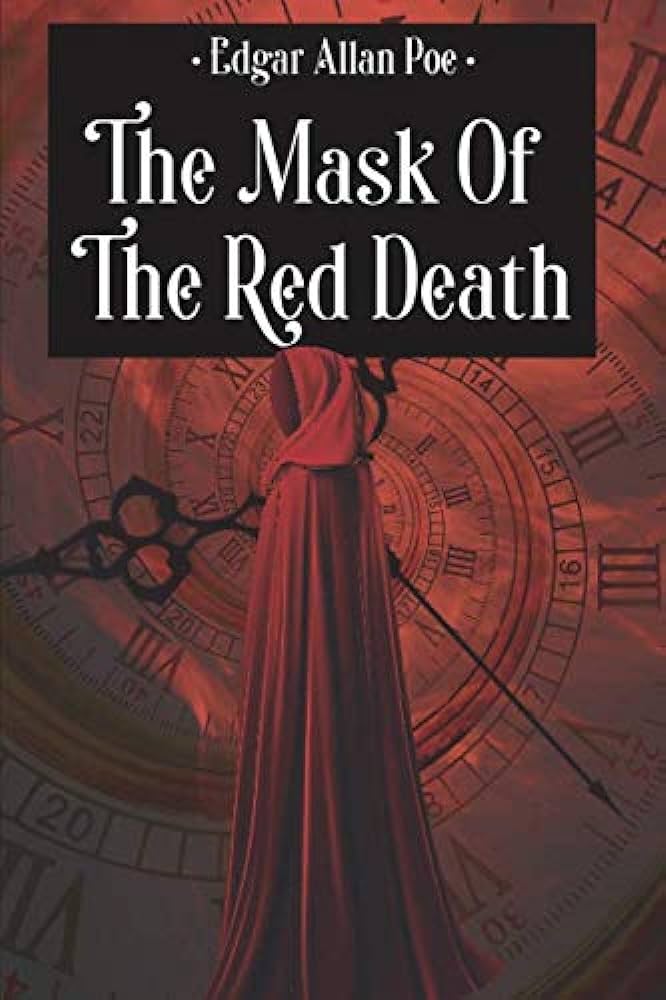
We have another great example here of utilizing IP from the public domain. There are thousands of stories out there that, if found, could easily be turned into movies. You must be alert to that.
I asked ChatGPT for the five best Edgar Allan Poe stories that have not been turned into movies yet and this is what it gave me. Feel free to start writing one today.
“The Devil in the Belfry”: A humorous tale about a small town’s chaotic experience when a devilish stranger disrupts their routine.
“A Tale of the Ragged Mountains”: A mysterious story involving mesmerism, hallucinations, and a strange adventure in the mountains.
“The Spectacles”: A comedic narrative about a young man who mistakenly courts his great-great-grandmother due to poor eyesight.
“Hop-Frog”: A dark revenge tale about a court jester who enacts a gruesome revenge on the king and his ministers.
“The Man of the Crowd”: A psychological tale focusing on a man who obsessively follows a mysterious figure through the streets of London.
The Spectacles is definitely the funniest one. I don’t know if you could build an entire movie around it. Hop-Frog has some potential, especially if you update it to modern day. And it looks like Christopher Nolan already stole one of these for himself, adapting it into his first feature, “Following.”
Let’s see if today’s script is as good as any of these…
It is the 14th century and Prince Prospero’s people are being ravaged by the Red Death, a virus so nasty you could be pulp within hours of getting it. The cowardly Prospero orders the gates of the kingdom to be closed so that all of the upper-crust folks are safe from what is thought to be a ‘peasant disease.’
When Prospero’s sister, Duchess Margarita, conveys her disdain for such action, she’s kicked out of the council and she leaves the kingdom. She just so happens to run into her doppelganger, Isabel, who it turns out is her long-lost twin sister, who was supposed to be killed due to being the offspring of the chambermaid.
After Margarita quickly succumbs to the Black Death, Isabel and her 13 year old daughter, Rose, decide that they stand a much better chance against the Red Death inside the kingdom’s walls compared to out. So they head to the castle where Isabel pretends to be Margarita. Rose pretends to be the young peasant who found and saved her life.
Prince Prospero is thrilled that his sister is back but both Isabel and Rose quickly find out that Margarita is kind of hated around these parts and some people – the Princess’s handmaiden in particular – are desperate to kill her. That would seem like the worst of it but Isabel also must fend off people like 60-something Franz (who presents as 80-something), eagerly anticipating (assuming that she’s Margarita) their next hookup. Isabel is horrified.
Isabel will have to navigate a world – royal family politics – she has no reference for, which has numerous family-members dying around her for the most shocking of reasons (Poor Franz is dressed up like a bear to be killed in a pre-dinner duel so that Prospero may slaughter him and therefore be seen as a “powerful” prince). It isn’t long before Isabel starts to wonder… is it really better inside these walls than out?
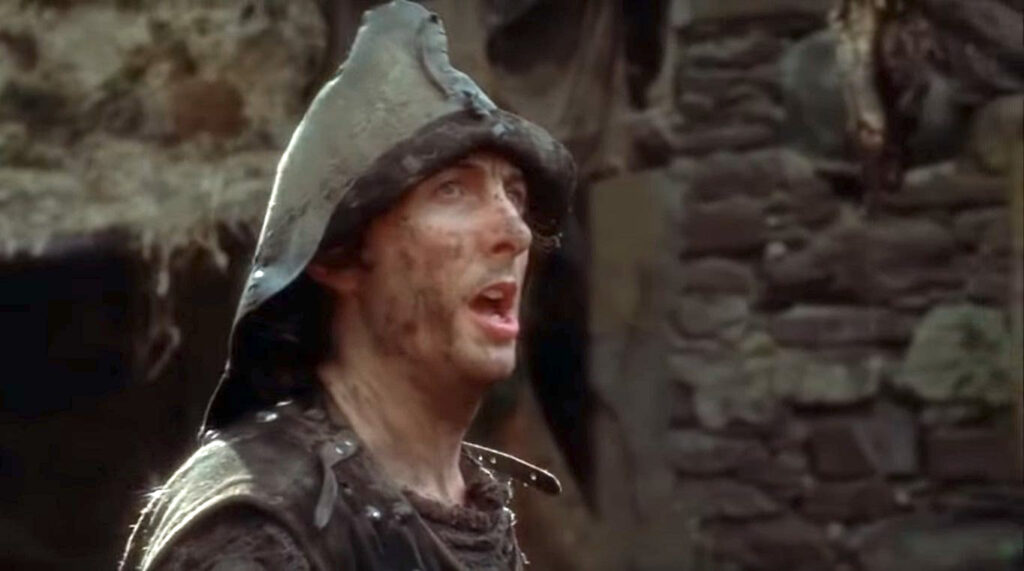 “Bring out yer dead!”
“Bring out yer dead!”
This was surprisingly good.
It’s got a healthy dose of Myton Python guiding it.
I think the biggest surprise is how timeless the humor is. A lot of the funny moments from this story would work in movies today! Which is probably what Polinger saw in the story.
The scene where Isabel is hanging out in her bedroom and this lecherous old man comes in ready to do the dirty and she has no idea what’s going on – that joke works in 1850 and 2050.
As does the head guard, Sven, who spends every day waiting for anyone to show even the barest signs of the Red Death and then beheads them on the spot, lol. Again, that joke works in 1400. It works 2200.
Even Hop-Frog (from the earlier loglines) makes an appearance at dinner, swinging awkwardly from the windows, stumbling around, accidentally tearing curtains off, failing to land flips. His jestering antics are funny anywhere.
The script also has some edge to it. Prospero is such a wimp that he craves humiliation in all its forms, succumbing to regular golden showers from his ditzy wife’s power-hungry handmaiden.
There isn’t a lot of humor celebrated on this site. Most of the comedy scripts are barely able to scrape together a few chuckle-worthy jokes. This one’s got lol jokes from start to finish.
It’s also built on a powerful storytelling device – LYING. Lying is a very powerful engine in and of itself because it requires characters to hide things. And that’s always fun to watch. We just saw this in yesterday’s script. The main character, whatever her name was, was built around her dependence on lying.
In this case, lying takes even more of a front seat because there’s more at stake. Isabel is lying about her identity and if she gets caught, she’s killed. So every situation she’s in feels big.
And for those who bought my dialogue book, you will recognize this as REVERSE DRAMATIC IRONY, or some call it “Superhero Dramatic Irony,” because we know who the main character really is but nobody else does (just like we know Clark Kent is Superman but nobody else does).
This means that every interaction she gets in is going to have subtext attached to it.
But the script does have a major flaw, which is that it doesn’t have a plot. Once Isabel gets into the kingdom, she doesn’t have much to do other than avoid getting exposed. A negative goal doesn’t power a narrative. You can get 5, 6, maybe even 7 scenes out of the initial comedy of Isabel trying to fit in and pretend she’s a Duchess. But, sooner or later, the audience wants to know where we’re headed.
For example, something you might do is reveal that there’s a secret plan, from some power-hungry character, to kill Prospero in five days. And maybe Isabel doesn’t like Prospero so she’s initially fine with this. But, as time goes on, she kinda likes the guy. And now she has to decide whether to tell him and save him.
That’s just one example of what you could do. Notice that it gives the reader a destination. It provides some suspense. We’re going somewhere with the story as opposed to wandering around the halls waiting for things to happen.
They finally figure out who Isabel is and now she has to fend for herself. After that, we get a really wild weird ending which is what ALWAYS happens when you write a narrative that doesn’t have a purpose. Your ending comes around. You’re not sure what to do. So you THROW THE CRAZIEST SH*T YOU CAN THINK OF at the reader to try to shock them into forgetting that there hasn’t been a plot for the last 60 pages.
I don’t know if that’s what happened in the original story or how much of his own ideas Polinger is adding to the script. Not to say the script was bad. It was just that, so much of this script is really fun. So the messy ending stands out as a sore spot.
But the script’s definitely worth a read. This is one of the better scripts on the 2023 Black List for sure.
[ ] What the hell did I just read?
[ ] wasn’t for me
[x] worth the read
[ ] impressive
[ ] genius
What I learned: Be careful about any creative choice that forces your hand for the rest of the script. Early on here, when Isabel first impersonates Margarita, she also pretends to be blind due to falling off her horse and hitting her head. It leads to some funny moments early on. Everyone will have to walk across the room and Isabel will walk in the other direction. The problem is, you now have to commit to that blindness FOR THE ENTIRE REST OF THE MOVIE. Which is a hassle. Cause I guarantee there will be dozens of times when the scene would be a lot easier to write if the character could see. So you lock yourself into this annoying trait for, what amounts to, two minutes of funny jokes. Always weigh every major creative choice against how it affects the rest of the screenplay. Sometimes these things just aren’t worth it.
Genre: Romantic Comedy/Historical
Premise: Set in 1968 during the space race, a compulsive liar ad exec is added to the NASA team to drum up money (and support) from the American public to fund a moon trip that’s 400 million dollars over budget. She runs into a flight director who wants nothing to do with the woman, yet can’t take his eyes off her.
About: The most interesting thing about this project for me is that it’s written by Rose Gilroy, who wrote one of my favorite scripts from last year, The Pack. Here’s that logline: “A documentary crew in contention at the Emmys for their film about wild Alaskan wolves is hiding several big secrets about their troubled 3 month shoot.” This is the COMPLETE OPPOSITE of that script. That script was very artsy and unique. This is a rom-com. So I’m curious to see what she does with it.
Writer: Rose Gilroy (story by Kennan Flynn and Bill Kirstein)
Details: 135 pages!
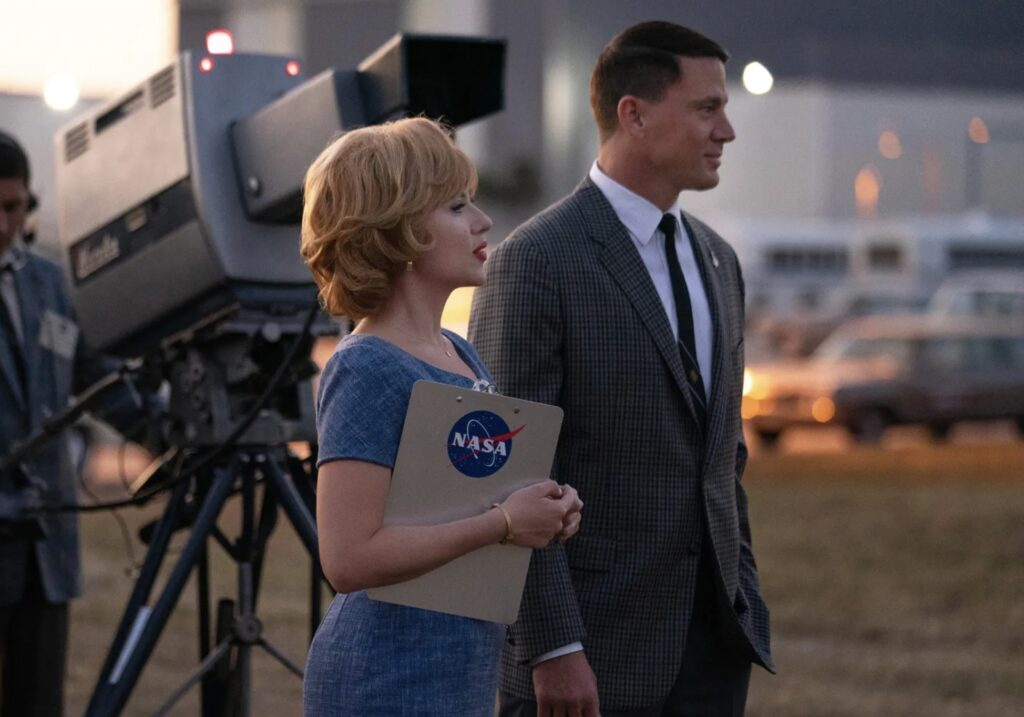
Many years ago, it was hard to get a movie through the system.
It really had to be battle-tested and go through the wringer of development. At that time, people always said, “What would happen if the studios actually took chances and didn’t do all this movie-by-committee stuff?” The prevailing theory is that we’d get a neverending stream of perfect movies.
But part of the sly gig of saying such a thing was that the sayers knew they would never have to answer to their predictions. There would be no situation in which studios would make 200 million dollar movies that didn’t have to perform well.
And then the streaming revolution happened.
Amazon, Apple, and Netflix had hundreds of billions of dollars to spend and, therefore, didn’t care how their 200 million dollar movies performed. They gave carte blanche to whoever wanted it.
So the big experiment got to play out.
Did we ever get that revolution of amazing movies we thought we would?
No.
A good argument could be made that movies have gotten worse – 6 Underground (150 million). Red Notice (200 million). The Tomorrow War (200 million). And then you had artsy duds like Killers of the Flower Moon, Roma, The Irishman, and Mank. If you don’t force a project to go through any sort of development process to EARN its spot at the theater, it’s only natural that you’re going to get weak products.
This is why everything comes down to the screenplay. If the screenplay is good, the movie is almost always good. So it’s worth it to battle-test your screenplay. I used to think that development was bad just like everyone else outside the system. But now I know, as long as people are giving you notes in good faith, that every time someone notes an issue in your script, it’s an opportunity to make the script better.
I look at a project like Fly Me to the Moon and I think – this is the exact type of movie that clueless streamers greenlight. It’s got little-to-no market value. It doesn’t have a very exciting premise. You could argue it feels dated.
BUT! I could be wrong. This could be an amazing screenplay and THAT’S the reason why they decided to make it. Let’s find out.
It’s 1968 and NASA is 400 million dollars over-budget for their plan to put men on the moon. Cole, the 40-something flight director (played by Channing Tatum) doesn’t care. His job is to get men to the moon before Russia or else communism takes over the world.
But you know who does care? Moe Berkus. The Berkster is our resident villain and bureaucratic suit who storms in and says they need to change things around here before they go bankrupt.
The plan is to bring in 35 year old Kelly Jones (Scarlett Johanson), the female version of Don Draper. But don’t quote me on that. I only saw 5 episodes of Mad Men. Kelly is an advertising genius who is not above lying ABOUT ANYTHING to get the gig. Actually, when we meet her, she’s pitching a company while pregnant. Except immediately afterwards, we find out the baby bump was a pillow. She just used it to get the job.
The nuts and bolts straight-as-an-arrow Cole may find Kelly attractive but he hates what she represents. She brings in every advertiser in the book, starting with Tang, and even hires actors to pretend they’re NASA engineers because the real engineers are all young and clueless.
The two bicker back and forth and as the launch gets closer, Moe comes in and tells Kelly she’s got to tell her biggest lie yet. They’re afraid that they might not get to the moon and, in that case, they need a backup. Hence she needs to lead the production of a faked moon landing.
As the real launch approaches, Moe tells Kelly that they’re going to go with the fake landing no matter what. And hence, Kelly must decide if this history-changing lie is worth her integrity.
Fly Me to the Moon is attempting to pull off the movie concept equivalent of a menage-a-trois. That’s when you write a romantic movie that has a MALE component to it. You see, usually, romance movies are just for the girls. But sometimes, they try to pull in guys too by adding a guy-like angle.
Titanic is the ultimate example of this formula’s success. You have the love story between Jack and Rose and then you have the historic sinking of a boat to pull in all the dudes. But just like when you go for the menage, if it fails, it fails spectacularly. Let me introduce you to Cameron Crowe’s, Aloha. You’ve got the romance storyline in that movie and then you have the cool launch of a satellite to pull in the guys. The fact that you don’t even know what movie I’m talking about tells you how bad this formula can go.
 Original book the movie was based on
Original book the movie was based on
Luckily for Fly Me to the Moon, it’s not as bad as Aloha.
Actually, as a screenplay, it does a lot of things [technically] right. We’ve got the goal – get to the moon. The stakes are high – Communism takes over. You have your urgency – It’s a race against the Russians.
You’ve got your obstacle – they don’t have enough money, which is why they hire Kelly. You’ve got your conflict between the two romantic leads – Cole needs to get this mission ready while Kelly keeps interrupting that so she can advertise the mission to the American people. This is complicated by the sexual tension between them.
And you’ve got very clear flaws for each of your main characters. Cole will always tell the truth to a fault. Kelly will always lie to get what she wants.
So why doesn’t the script work?
You guys hear me talk all the time about how important the fundamentals are. Get all that stuff right and your script has a much better chance of succeeding. Yet they do so much right here, and it still turns out to be average at best. Why?
For starters, the concept isn’t wonderful. This is a strange combo. A romance built around the moon race? Those two things don’t roll off the tongue, you know what I’m saying.
This is true for almost every idea. If the concept is flawed, no manner of execution is going to save it. At best, good execution of a weak concept gets you an average screenplay, which is exactly what this is.
Also, they took a big risk by introducing the fake moon landing subplot. It’s a risk because you’re already pushing two things together (the romance and the moon landing) that don’t go together. So to then add a third awkward plot point to the movie made it feel even sloppier. Simple as that. Like the writers weren’t sure what kind of movie they were making.
Now, I understand what they were trying to do. They were trying to pay off Kelly’s flaw. What is the biggest obstacle we can place in the way of someone who lies about everything? Come up with a lie so big that she’d be betraying not just this guy that she likes, but the entire country.
So it makes sense when you talk about it out loud. I could see this conversation going over REALLY WELL at the writer’s table. But sometimes writing is like coaching basketball. You can’t just put the five guys with the best stats on the floor all the time. You have to find the five guys who complement each other best. There’s a “feel” aspect to it just like there’s a “feel” aspect to writing.
And while it sounds well and good to place this giant lie obstacle in front of your big lying co-protagonist, it ultimately hurts the script because it sends the story down this other direction that isn’t that interesting to the audience. Also, if you’re adding subplots that make your movie 140 minutes instead of 110 minutes? Think long and hard about whether that subplot is worth it.
So, unfortunately, this will continue Apple’s streak of making movies for its service that nobody watches. It wouldn’t matter if Hawk Tua Girl and Edmonton Flasher Chick made out for the entire first act – this movie doesn’t even make it out of the troposphere.
[ ] What the hell did I just read?
[x] wasn’t for me
[ ] worth the read
[ ] impressive
[ ] genius
What I learned: Introduce and introduce big. Have you ever been at a store or at an event or just out and about and some random person says something to you? Chances are, you turn to them and ask, “Huh? What’d you just say?” You missed what they said because you weren’t prepared for their question. That’s a lot like how readers experience character introductions. In that first act, you’re introducing a bunch of characters to them. And it’s happening so fast that they’re not catching them all. If you introduce 10 characters in the first 15 pages, there’s a good chance that the reader will only remember half of them. Therefore, when you introduce somebody important, introduce them IN A BIG WAY. Kelly is a big character here. How do we introduce her? We introduce her pregnant, pitching an advertising campaign, then afterwards saying, “I need a drink,” before pulling her fake baby bump out from under her shirt. That’s how you introduce a character who we’re going to remember.
From Seinfeld to Inside Out to A Quiet Place to House of the Dragon, this may be the most mishmashy of Mish-Mash Mondays ever!

Because I watch Seinfeld so much, Youtube always recommends Seinfeld-related content to me.
Yesterday, it recommended me this couple, who had never seen Seinfeld before, watching a video compilation of “all the best Seinfeld moments.” The first scene in the compilation is a famous scene from an early season where Jerry and Elaine pick up a car from a car rental company.
In it, the car rental attendant tells Jerry that the car he reserved isn’t available. The next series of jokes is Jerry pointing out that the whole point of a reservation is that the car remains reserved. “Anybody can just TAKE reservations,” Jerry says.

The couple watching this clip laughed quite a bit because it’s a relatable situation that we all have been through in some form or another.
But then an interesting thing happened. As more “Best Of” Seinfeld scenes continued to play, many from the later seasons, the couple was laughing less and less.
There’s one scene where Jerry and Kramer switch apartments for reasons too elaborate to summarize here, and Jerry starts becoming Kramer (wild and untethered) while Kramer starts becoming Jerry (calm and sarcastic). The scene plays out with Jerry stumbling into “Kramer’s” apartment telling a wild story about what happened to him after staying up all night.

The couple didn’t laugh at all in this scene. Nor did they laugh at the next scene where Jerry and George are trying to figure out how to pull off the hardest move in the male-female relationship dynamic – the roommate switch. One of my all-time favorite episodes by the way.
It was at this point that I realized just how well these new scenes were written and how poorly that first car reservation scene was written.
You’re probably thinking, “Wait, Carson. You got that mixed up. You mean how good the CAR RESERVATION scene was and how weak the OTHER scenes were.” No, you heard me correctly. How good THESE NEW SCENES were. And I know I’m right SPECIFICALLY BECAUSE the couple wasn’t laughing at them.
You see, with good writing, the plot and the characters are so intertwined that if you just dropped into the show (or the movie) and watched whatever scene was next, you wouldn’t be able to enjoy it. At least to the extent that it was meant to be enjoyed.
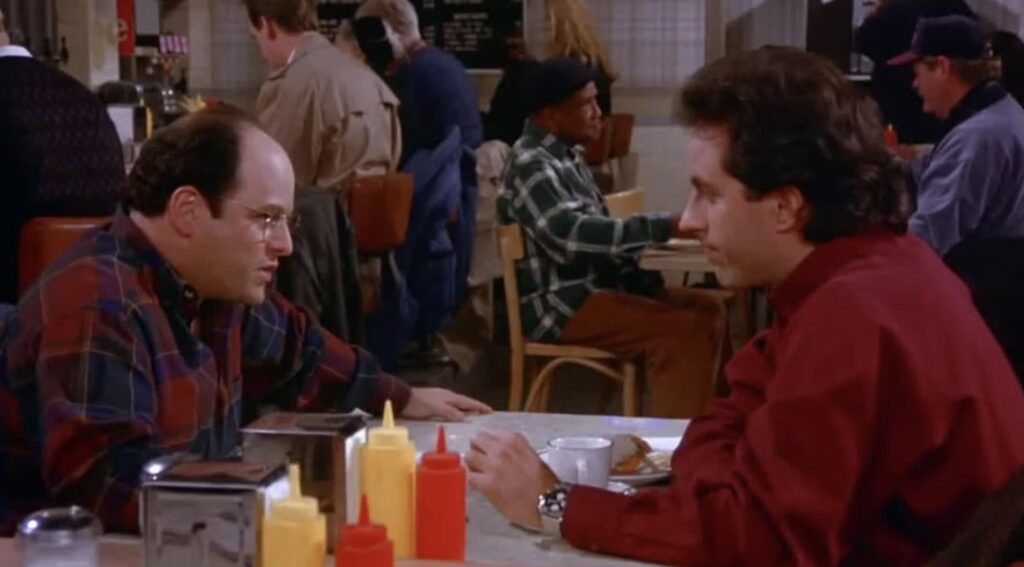
Because the writers have been carefully setting that scene up through all the other scenes written before it. The scene with Jerry and George pulling off the roommate switch was prefaced by ten scenes setting up the fact that Jerry was going out with a really lame girl who never laughed at his jokes and who he didn’t have any fun with. One day he dropped her off at her apartment and met her roommate and her roommate was the opposite. She was fun and laughed at everything he said. She was his ideal woman. But it didn’t matter because she was his girlfriend’s roommate and, therefore, there was no way for them to be together.
It’s only when you’ve seen Jerry and the girlfriend together a few times and experience their lame dynamic then see how electric it is between Jerry and the other girl that you fully understand this scene where Jerry sits George down to try and figure out if the impossible – the “Roommate Switch” – can be done.
Now, if we go back to that first scene, with the car reservation – that scene was reflective of early Seinfeld episodes, where they would write individual self-contained scenarios that had little-to-no setup. It’s like the writers said, “What’s funny? Oh yeah, when you go to the car reservation place and they don’t keep your reservation.” Then they would write that scene regardless of whatever the plot was.
There was no connective tissue. They just found funny situations and would ram them into wherever there was a hole in the script.
That’s not to say that scene can’t be good or that the car reservation scene wasn’t funny. I was exaggerating when I said it was weak. But a truly good scene rarely works unless you’ve watched everything before it. Because an essential component of good writing is using each scene to build that which you will pay off later.
This is not just true for comedy. It’s true for everything. If you showed your favorite scenes to people who have never seen the movies before, there’s a good chance they won’t think the scene is nearly as amazing as you do. That’s because they don’t have the context you do.
The operative lesson here is, every scene you write should only fully work for those who have watched everything up to that point. If the scene works all by itself, it doesn’t mean the scene is bad. But it definitely could’ve been a lot better.
You know what doesn’t have to be a lot better?
Inside Out.
This is one of those box office anomalies they’ll talk about for centuries to come. Nobody could crack the 100 million dollar mark for six months at the box office, and in just two weeks, one movie has pulled in 350 million. And three-quarters of a billion worldwide!
Usually, any box office assessment is silly Monday Morning quarterbacking. Everybody’s guessing at why *this* did well or *that* did badly. It’s fun but not relevant.
However, when a movie outperforms the market this much, a market that’s flailing, you have to take notice. You have to ask why. I know this itches people the wrong way but the lack of any message-pushing is partly why it’s doing well. The fact that it’s animated means it has the biggest potential audience to pull from. It isn’t like an R-rated flick where you only have access to 60% of moviegoers.
Also, shout out to screenwriting. The first Inside Out had an amazing screenplay. The world-building alone should be taught in film school. I still think it should’ve won the Oscar. That definitely played a part in people eagerly coming back for more.
But outside of that, I don’t know why it’s doing so well. It’s not like it had Nemo or Elsa or Simba or Woody. I doubt anyone even remembers what the main character’s name is. So it’s a bit of a mystery. There’s some people who are going with the old air conditioner theory. It was scorching hot all weekend and everyone wanted air conditioning for two hours.
I don’t know. I *will* watch it when it hits streaming. But it won’t be a theater movie for me.
By the way, this weekend is going to be nuts for content. The 27th is when The Bear Season 3 comes out. Netflix releases Beverly Hills Cop 4 the next day. And A Quiet Place comes out with its second sequel.
And here’s something to keep your eye on. That movie IS NOT being shown to critics. That is a GIANT red flag. I was worried about this movie THE SECOND I read that Death of Robin Hood script. That script was AWFUL. And when I realized that he was the one doing Day One, all my excitement was murdered. Cause those trailers were sooooo good. But, hey, I’m still hoping for the best. And it’s always nice to go into a movie with zero critical analysis clouding your judgment.
Okay, on to House of the Dragon.

To give you some context here, I used to get a lot of e-mails asking me why I never reviewed Game of Thrones episodes. Which was because I stopped watching the show in Season 5. I remember watching 4 episodes in a row where nothing happened. So I was frustrated. It wasn’t that I actively stopped watching it. I just never got back to it.
So I wanted to be on top of things this time around. I wanted to be there at the ground level. However, I’m starting to read some House of the Dragon backlash online. The ratings, supposedly, aren’t that high. I don’t know if I believe that, though. People literally watch stuff 20 different ways these days. There’s no chance they’re able to track views across all platforms/media.
What I’m looking for in episode 2 is some actual CRAFT to the storytelling. It can’t just be exposition exposition exposition exposition SHOCK at the end, like last week. Let’s find out what happened!
From a writing perspective, this episode is interesting. Because it’s dealing with a sort-of problem. When you kill off an important character, it is necessary that you commit to the ramifications of that story choice.
In other words, you can’t just jump forward and not mention anybody’s reaction to the child’s death, so that you can get to more exciting story threads.
The problem is, even though the character was technically important, it’s not a character we knew. It’s a baby. So it’s not like WE THE AUDIENCE need to grieve. Therefore, we would’ve been fine with moving on.
But since it doesn’t make sense for the characters to move on, the writers must commit to that choice. They must show us the funeral. They must sit in the sadness and the anger inherent in the multitude of characters close to the child.
To do this as a writer, you have to make a bargain with the audience. If you’re going to make them suffer through this, you have to give them some meat. And the best place to find writing meat is in the future. So, one of the first things we hear from the Hand of the King is: “Don’t worry, we’re going to go to war soon. But first we have to make some strategic moves to get a few more people on our side.”
This is the whole kit and caboodle with screenwriting. You have to promise the reader that, if they keep reading, they’ll be rewarded. “Cool shit is coming” is the gangster way of saying it. So we’ll suffer through eating soup for a few nights as long as we know we’re getting a five course meal (the war) at the end of the week.
But that doesn’t mean you can only focus on the sadness. We do get our share of sad scenes in the aftermath of this brutal assassination. But we need cool scenes. Scenes that grab us. And, in TV writing, the bread-and-butter way you do that is you put two people in a scene and ramp up the conflict.
So, the two big scenes in this episode are 1) When Rhaenyra confronts Daemon about initiating this assassination, which is going to weaken their support in the war. And 2) When the young King Aegon confronts the Hand of the King, Otto Hightower, about his crappy advice and forces him to give up his position.
The second scene stood out, in particular, because there was actually a consequence at the end of the scene. TV suffers from a lot of scenes where conflict happens but we’re at the same place at the end of the scene as we were at the beginning. So even though we got some drama, the scene ultimately feels unimportant. This scene actually ended in something happening so it became one of the best scenes in the episode.
The best scene of the episode, though, is at the end when the bad twin infiltrates the Queen’s quarters and tries to kill her. Remember that no amount of dialogue conflict will ever beat a character actually TAKING ACTION. When you have characters taking action, they are going to create SOMETHING. So it’s always a good idea to keep your characters active as opposed to waiting for the next conversation.
I do think that House of the Dragon is well-written. I don’t like some of these scenes, such as rando King Number 7 laying in bed with his wife mumbling about who knows what. But that’s one of the challenges of writing a show like this. You need to keep those characters in the mix so we don’t forget about them and, sometimes, you don’t have anything for them to do, so you just give us a weak reminder scene. But it’s definitely one of the better-written shows out right now. What’s better?
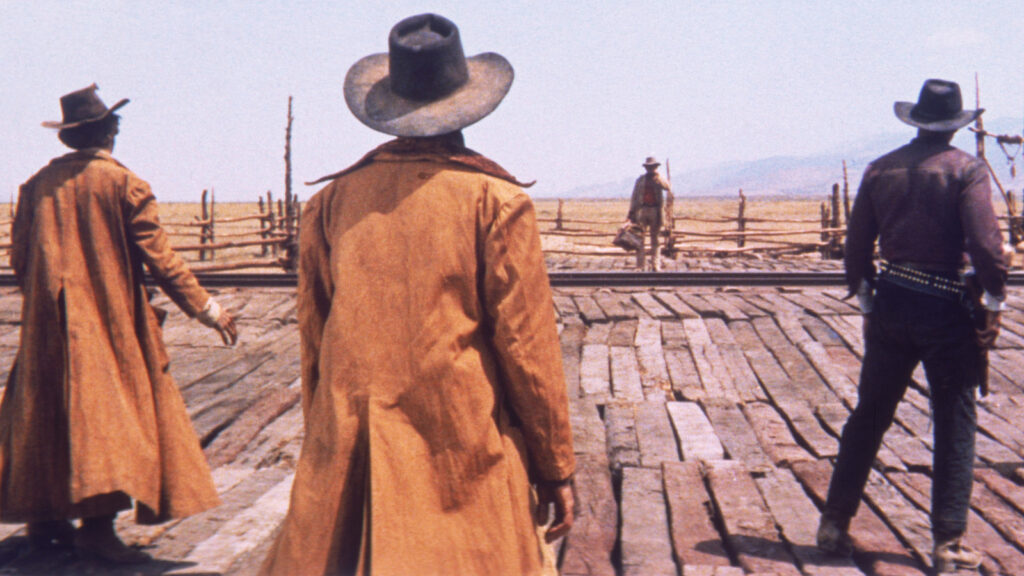
This was one of the more delightful entry-reading Showdown experiences I’ve ever had. There were so many fun entries.
Also, a lot of you seem to know what I like because there were some VERY Carson-specific entries. My favorite was probably this one: “Five years before his fateful encounter with Han Solo, a young Greedo is forced to choose between his dream of becoming the galaxy’s preeminent ‘Tatooine Jazz’ musician or following in his scumbag father’s footsteps by taking over his fledgling bounty hunter business.” I can’t include it in the official competition though since it’s got no shot of being made.
Also, kudos to those of you who used the taglines and crossover pitches to cleverly add context to what kind of show it was. In a couple of cases, that’s why I chose your entries.
I have NO idea who’s going to win this week. I’m very curious which logline you guys anoint as the winner. If you haven’t played the Showdown game before, read all the entries below and, in the comment section, vote for your favorite. Feel free to tell us why you chose it over the other entries as it will help writers get better.
Voting closes on Sunday, 11:59pm Pacific Time!
Next month we have MEGA-SHOWDOWN.
But for this weekend, it’s all about the PILOTS.
Good luck everyone!
Title: The Formers
Genre: Workplace Comedy
Logline: After a mass casualty event wipes out the U.S. government, a group of long-retired Washington luminaries are called out of retirement to assist the young, new White House staff running the country – if they can put aside their petty squabbling and old-school attitudes long enough to help.
Crossover Pitch: Veep x The Office
Tagline: Sometimes old dogs can teach new tricks
Title: PROJECT INNOCENCE
Genre: Legal Thriller
Logline: A headstrong first-year law student fights her way onto her school’s nationally recognized “Innocence Project” – led by a brilliant and charismatic professor – only to discover that her professor may not be who he seems and the convict they’re trying to free may not be that innocent.
Title: Funny Money
Genre: Drama
Logline: When a hapless stand-up comedian unknowingly passes off an ultra-high-quality counterfeit hundred-dollar bill known as a “superdollar,” he stumbles into the middle of an international criminal conspiracy with a bankrupt Native American casino chairman, a dogged Secret Service agent, a North Korean spy and a diabetic cartel enforcer with an insatiable sweet tooth.
Crossover: Fargo x Barry
Title: PLAYWRONG
Genre: 30 min Period Comedy
Logline: A troupe of struggling actors fight for relevancy for their small, dingy theatre located directly across the cobblestone street from Shakespeare’s Globe Theatre at the height of its fame.
Tagline: Hath thou heard of us? (Carson note: Best tagline of the entries!?)
Title: Boozeville
Genre: Half-hour comedy
Logline: Fleeing scandal, a dainty and demure English paleontologist moves to a tiny, extremely remote Australian outback town in search of a big dinosaur discovery – but first she must win over the locals.
Crossover pitch: It’s Always Sunning in Philadelphia meets Crocodile Dundee
Title: The Diary of Molly Winters
Genre: Horror
Logline: Two weeks after a high school loner mysteriously disappears in the woods of northern Washington, a determined guidance counselor attempts to uncover the young girl’s fate by interviewing four of her seemingly unconnected classmates who got lost in those same woods…and showed up three days later with the missing girl’s body.
Crossover Pitch: It meets True Detective.
Title: BARBARA DANIELS, SUPER MOM
Genre: Drama
Logline: Suburban Wife and mom of two, Barbara Daniels is seemingly the perfect Stepford woman – besides the secret Dominatrix Dungeon that she runs, unbeknownst to her family and friends.
In the vein of “Weeds”
I spent a good hour debating whether I should include this last entry. I mean, classifying your genre as “Transgressive Medieval Fantasy” alone gets you points for boldness. In the end, it’s too original of an idea not to include. So, it’s in the running.
Title: FLESH PAINT
Genre: Transgressive Medieval Fantasy
Pilot Logline: In a twisted dark age where the price of creating art is dismemberment, a blueberry-picking serf with an extraordinary talent is blackmailed into painting an erotic portrait of the king’s imprisoned daughter.
Remember, TODAY (THURSDAY) IS THE DEADLINE FOR PILOT SHOWDOWN! Do you have a pilot to submit to the contest? Best five loglines will be featured on the site and you guys will vote for the winner, which gets a review next week.
Here’s how to enter!
What: Pilot Showdown
I need your: Title, Genre, and Logline
Optional: Crossover Pitch, Tagline
Competition Date: Friday, June 21st
Deadline: Thursday, June 20th, 10pm Pacific Time
Where: Send your submissions to carsonreeves3@gmail.com
===========================================
Okay, onto our screenplay rewrite! If you’re new to the site, we’ve spent all year writing a script. We’ve since moved on to the rewrite process. We are in the sixth and final week of rewriting our SECOND DRAFT. Below, you can jump to every post that led us here.
Week 1 – Concept
Week 2 – Solidifying Your Concept
Week 3 – Building Your Characters
Week 4 – Outlining
Week 5 – The First 10 Pages
Week 6 – Inciting Incident
Week 7 – Turn Into 2nd Act
Week 8 – Fun and Games
Week 9 – Using Sequences to Tackle Your Second Act
Week 10 – The Midpoint
Week 11 – Chill Out or Ramp Up
Week 12 – Lead Up To the “Scene of Death”
Week 13 – Moment of Death
Week 14 – The Climax
Week 15 – The End!
Week 16 – Rewrite Prep 1
Week 17 – Rewrite Prep 2
Week 18 – Rewrite Week 1
Week 19 – Rewrite Week 2
Week 20 – Rewrite Week 3
Week 21 – Rewrite Week 4
Week 22 – Rewrite Week 5
On this sixth and final week of our 2nd draft rewrite, I want to remind you what’s important about your rewrite and what’s not important. Because what I’m learning from you guys is that you place the majority of your focus on parts of the rewrite that don’t matter all that much.
The reason for this is probably that rewriting is one of the most nebulous parts of the craft. It contains the least amount of clarity as far as what to do.
The other day I was helping a writer prepare for a second draft and we went through all the problems and talked through all the solutions and I thought we were good to go. I said, “Aim for 4 pages a day and you’ll be done in a month.”
But he said, “Hold on. I’m not writing from scratch. I’m going to be rewriting certain characters. I’m going to be changing scenes. I’m going to add mythology and detail. Don’t I need a different metric than ‘pages per day?’
I thought, ‘you know what, he’s right.’ Cause if you have to reimagine your main character – changing his tone from passive to active, changing his flaw from arrogant to obsessive – that’s a nuanced rewrite that doesn’t cater to the “pages per day” metric.
That’s why rewriting always feels messy. It’s not like painting a house.
It’s like painting a house, and planting a garden, and setting up a monthly spending budget, and keeping your marriage fresh, and fixing your car, and saving money for your kids’ college. It requires all of these unique skills to get to the finish line.
So, since we’re running out of time, I just want to remind everyone what’s most important in a rewrite. If you get just two things right, you can end up with a great draft.
Don’t get caught up in unimportant minutia that doesn’t affect the overall reading experience.
I know we all want that great dialogue but you shouldn’t be spending 4 hours on making the dialogue perfect in a two-page scene that’s mostly exposition. You’re wasting time doing that. Nobody reads a script and says, “You know, I really liked your script but some of your exposition was weak so I have to pass.”
Ditto description. It’s not that description isn’t important. But if you’re writing, say, a comedy, and you’re obsessing over describing your main character’s bedroom perfectly? That’s not why somebody reads a comedy script. They don’t read it for the excellent description of each and every location.
So that’s wasted time. Especially because over the course of the (minimum) 5 rewrites you’re going to need to get your script into shape, that scene that you spent all weekend perfecting might be cut later because that subplot wasn’t working.
Save all your dotting of the I’s and crossing of the T’s for your polish, which we’re getting to soon. But, at this stage, you’re rewriting. And when you rewrite, you want to get two things right above all else.
The first is the characters.
You want to make sure your main characters are clear. We understand…
a) their defining character trait
b) what they want
c) what their primary flaw is
d) and they must have some personality.
The reason most scripts fail is because characters are unclear, bland, or both. If, however, you nail your characters, it hides ALMOST ALL THE OTHER PROBLEMS IN YOUR SCRIPT. Cause we readers LOVE hanging out with characters we like or find interesting. And we don’t really care if the plot those great characters take us on is perfect.
Baby Reindeer has a wonky-as-hell plot. It jumps all over the place. The goals keep resetting. Martha leaves the story for large chunks at a time. But none of that matters because the two main characters are so compelling.
Almost as important as your main characters is your main character relationships. It is SPECIFICALLY the unresolved-ness of the primary relationship in your story that makes the reader want to turn the page. If two people are in love and they’re happy and they’ve got no problems, why do I need to turn the page? Their lives are set.
It’s only when relationships have that unresolved nature that we want to keep reading. Readers and viewers inherently want to hang around until something is resolved. So make sure that’s there in your primary relationships.
The second MUST-HAVE in a script is that you must deliver on what your concept promised. Or, another way to put it is: You gotta give’em what they came for.
So, if you’re writing a movie like Bad Boys, you better give us 4 inventive funny-as-hell set pieces. If you’re writing a movie like The Hangover, you better give us at least three hilarious characters. If you’re writing a movie like Inside Out, you better give us some really clever and funny explorations of emotions. If you’re writing Mad Max, you better give me some road-warrior car chases that we’ll never forget.
There are a lot of things you can do in rewrites that are going to improve your script. You can cut scenes that aren’t needed. You can combine characters so the story’s more streamlined. You can set up your hero’s objective more clearly. You can remind the reader of the stakes throughout the story. You can try to come up with more imaginative scene locations so all your scenes don’t take place in apartments, coffee shops, and work cubicles.
But none of those compare to:
- Getting the characters right.
- Delivering on the premise you promised.
So, let that be your guiding light if you feel lost during your rewrite. If you’re focusing on all this little stuff – STOP. We’ll get to the tweaking in the polish. But now, you just want the stuff that matters to be as good as possible.


